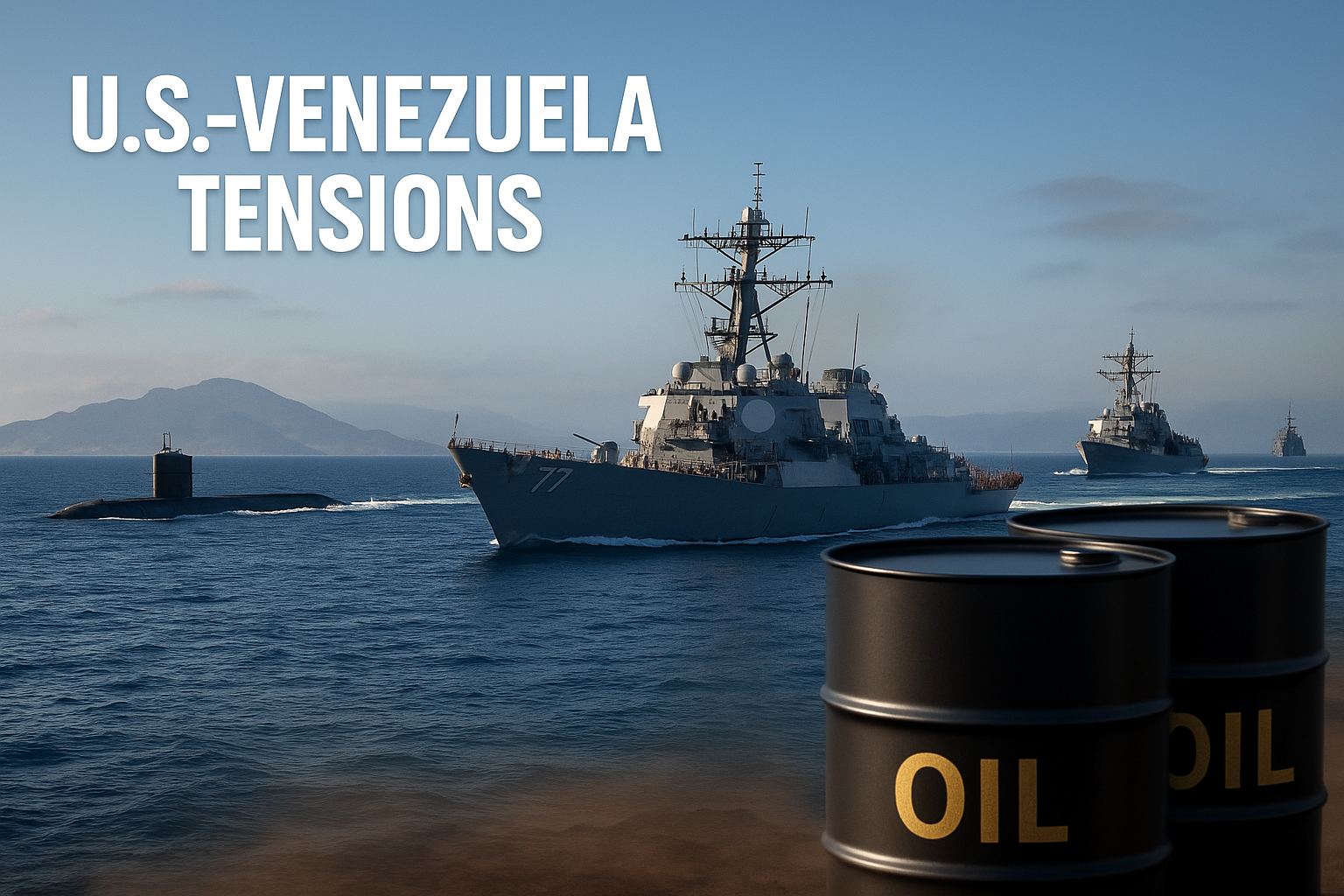Escalating U.S. - Venezuela Conflict: Warships Sent to Caribbean
By Tredu.com • 8/29/2025
Tredu

U.S. Warships Arrive in the Caribbean
U.S.–Venezuela tensions escalated this week as Washington deployed seven warships, a nuclear-powered submarine, and more than 4,500 service members to the Caribbean, in what officials described as a mission to target organized crime and drug cartels operating in Latin America. The move, however, was widely interpreted as a direct warning to Venezuelan President Nicolás Maduro, with implications stretching far beyond law enforcement.
The deployment includes 2,200 Marines trained for amphibious operations, a force composition that has raised concerns about the scope of U.S. intentions. Caracas immediately denounced the move, calling it an “act of aggression” and vowing to defend its sovereignty.
Maduro’s Response
President Maduro lashed out at Washington, branding the U.S. naval presence as “imperialist intimidation” and claiming it violates international law. In response, Venezuela mobilized 15,000 troops along its western border and ramped up militia training programs across the country. State media emphasized images of military drills, signaling resolve and seeking to galvanize domestic support.
Maduro’s government has long accused the U.S. of attempting to destabilize his leadership, particularly through economic sanctions targeting Venezuela’s oil sector. The presence of U.S. warships in nearby waters has reignited fears of a potential clash between the two nations.
Energy Market Implications
The escalation comes at a sensitive time for global energy markets. Venezuela, though its oil industry has been weakened by years of underinvestment and sanctions, still holds some of the world’s largest crude reserves. Any disruption to its exports—or even the perception of heightened risk—can send ripples through global prices.
Already, traders are factoring in a geopolitical risk premium, with crude futures edging higher as news of the U.S. deployment spread. Analysts warn that a prolonged standoff could destabilize supply chains across Latin America and amplify volatility in global oil benchmarks.
Washington’s Justification
The Pentagon framed the deployment as part of “Operation Sentinel Shield,” a regional initiative aimed at dismantling transnational criminal networks. Officials stressed that the mission is not an invasion but an effort to combat drug trafficking, pointing specifically to Venezuela’s Tren de Aragua and Mexico’s Sinaloa cartel.
Still, many observers see the scale of the deployment as disproportionate for a counter-narcotics mission. “You don’t send a nuclear submarine to bust traffickers,” one regional security analyst noted, underlining the broader geopolitical signaling at play.
Regional and Global Reactions
Neighboring countries are treading cautiously. Colombia, traditionally a U.S. ally, expressed “concern” but stopped short of endorsing Washington’s actions. Brazil called for restraint and urged dialogue, while the United Nations reiterated its call for de-escalation.
China and Russia, both strong backers of Maduro, condemned the deployment as “provocative,” warning that U.S.–Venezuela tensions risk destabilizing the wider Caribbean and undermining global energy security.
Risks to Regional Stability
Beyond oil markets, the confrontation threatens to inflame broader instability across Latin America. Venezuela is already grappling with economic collapse, hyperinflation, and a refugee crisis that has displaced millions. Military escalation could worsen humanitarian pressures and push more migrants toward neighboring countries.
Financial markets across emerging economies are also sensitive to geopolitical shocks. A drawn-out standoff could spook investors, weaken regional currencies, and complicate borrowing for countries already facing tight fiscal conditions.
What Comes Next
Diplomatic channels remain open, but trust between Washington and Caracas is virtually nonexistent. Analysts suggest the U.S. deployment is less about imminent military action and more about signaling power projection in a region where China and Russia have increased influence.
For Venezuela, the standoff offers Maduro an opportunity to rally nationalist sentiment at home, even as his economy struggles under sanctions. For the U.S., it serves as a reminder that Venezuela’s oil reserves and strategic location remain too important to ignore.
The Bottom Line
U.S.–Venezuela tensions escalated as Washington deployed warships to the Caribbean, raising fears of conflict, rattling global oil markets, and spotlighting the fragile balance of power in Latin America. The standoff highlights how geopolitical risk in Venezuela reverberates globally—and why both investors and policymakers are watching closely.

How to Trade Like a Pro
Unlock the secrets of professional trading with our comprehensive guide. Discover proven strategies, risk management techniques, and market insights that will help you navigate the financial markets confidently and successfully.


